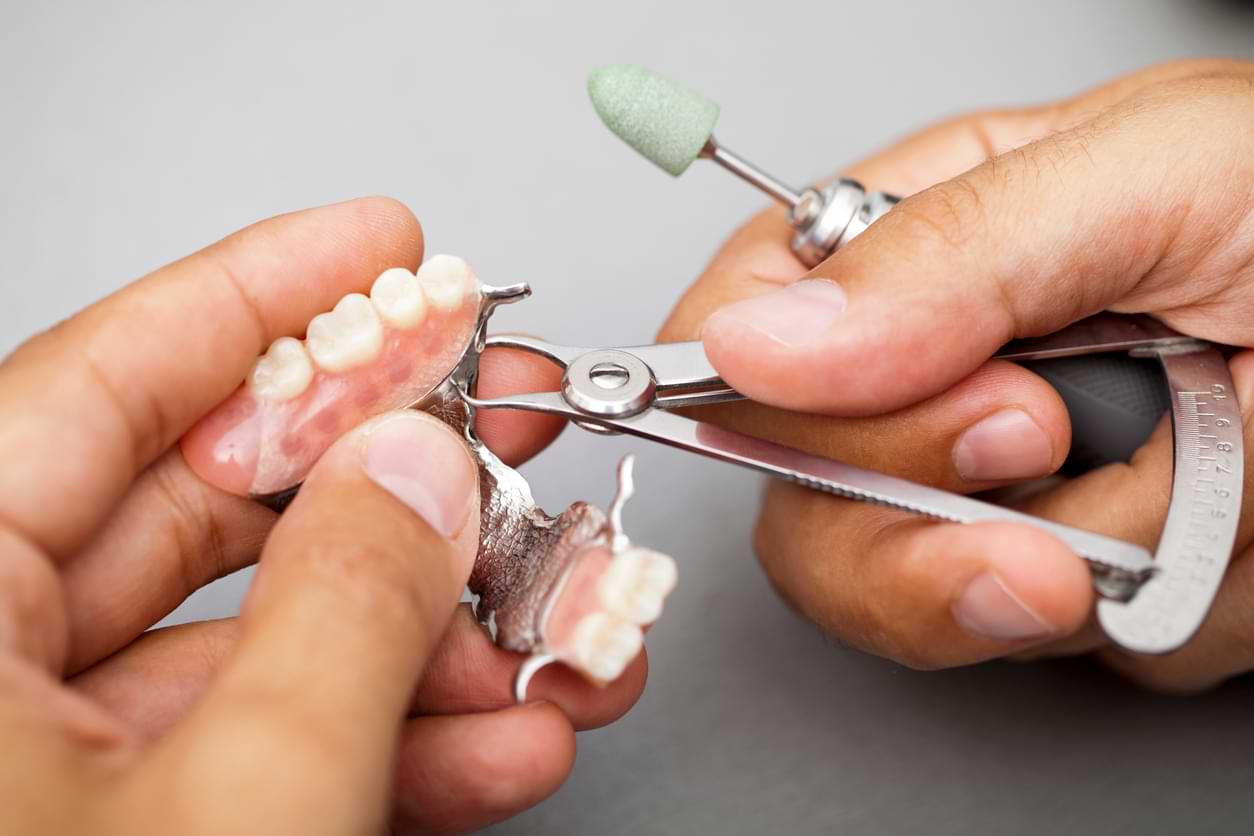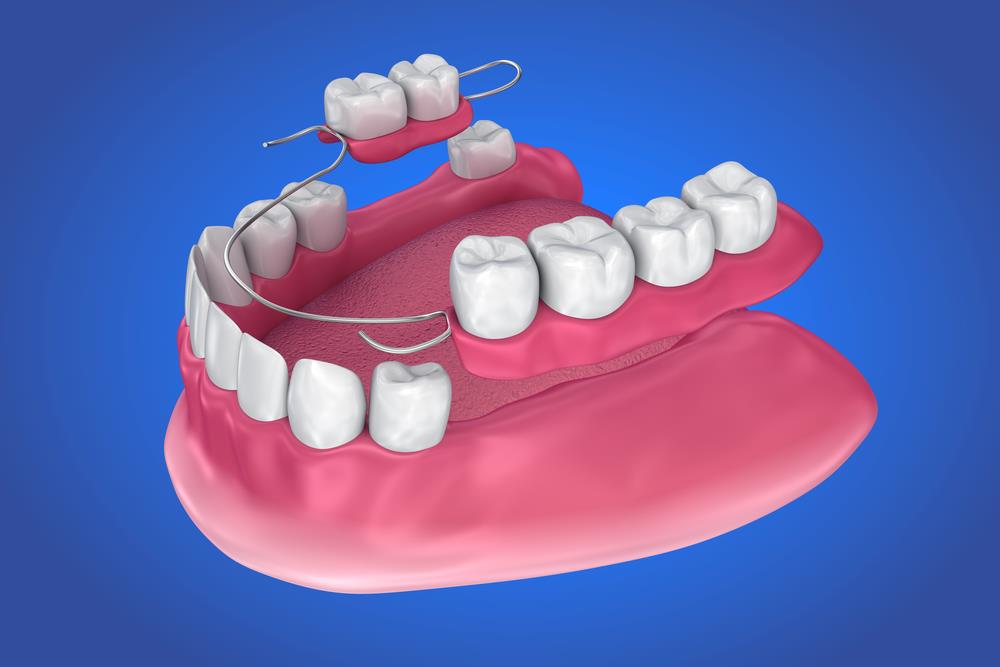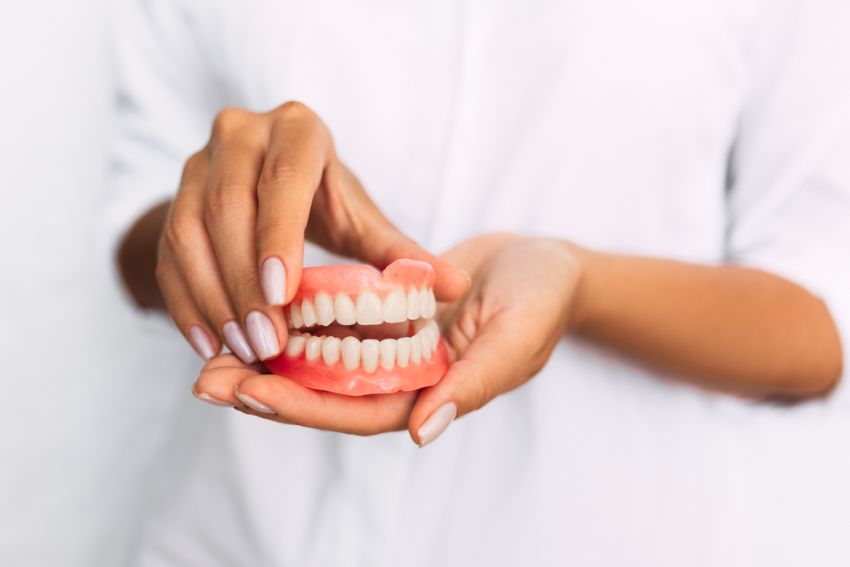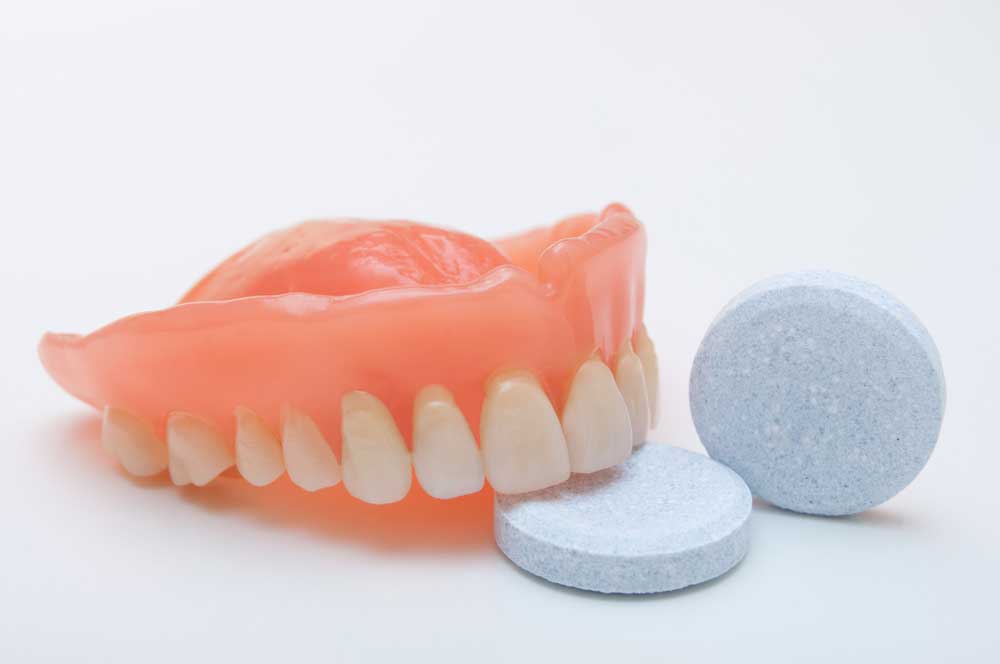
Are dentures worth it? When it comes to false teeth, it is very common to question whether or not it’s worth the perceived money, effort and discomfort. It can feel like a big life change, and a rather scary one at that. Truthfully, getting false teeth is not a big deal, and nothing like the way it’s portrayed in movies and TV. If you’re hesitant about getting dentures, you should know that there are many common misconceptions about false teeth that can make them seem undesirable. In reality, they can be an excellent solution to your dental concerns.
Are Dentures Only for Older People?
For many of us, the image of the elderly person letting their teeth soak in a glass by the bedside is burnt into our brains. This is why so many young people in particular associate removable dentures with their grandparents. While it is true that a lot of elderly people use false teeth, people of all ages require partial or full dentures. There are many reasons why someone might need dentures. They might, for example, suffer a sports injury, live with an illness, or have gum disease. Whatever the reason, and whatever your age, it is important that you replace missing teeth as soon as you can. This is to restore your mouth to its full function, and also to prevent further health issues, such as oral infections, headaches and trouble with your temporomandibular joints. Getting dentures also prevents you from experiencing shifting teeth and speech issues.
Do False Teeth Look Real?
Many people assume that dentures cannot possibly appear real, but with the latest fabrication technology, modern false teeth are virtually undetectable. These days, dentures are designed to fit perfectly to your mouth and fit in seamlessly with your remaining teeth, should you have any. False teeth are made in moulds, and can come in a huge range of shapes, sizes and shades to suit each individual mouth.
Can Dentures Be Reshaped?
False teeth are designed to last between 5 and 8 years. If you wear them longer than this, you might find that they will stop fitting well and may possibly cause damage to the surrounding teeth and gums. This is due to the fact that our mouths and jaws change shape naturally over time. When this happens, our dentures may become wobbly and uncomfortable, and will need reshaping. The reshaping process is usually referred to as a denture reline, which is a normal part of professional denture care. It is the process in which a layer of hard or soft material is permanently added to a denture to change its shape or size. This method allows the denture to regain its snug fit, making it good as new!
Are Dentures Uncomfortable?
One concern that many clients have is that their dentures will be uncomfortable. Since modern false teeth are moulded so precisely to the mouth, they should not cause any discomfort. It is worth mentioning, however, that medication can alter the fit and feel of your dentures. Specifically, a number of medications affect the amount of saliva you naturally generate on a daily basis. Without sufficient saliva, your dentures might not have enough adhesive to work with, and will cause some soreness and irritation. Thankfully, there are saliva alternatives you can purchase to resolve this issue. If you experience any other discomfort from your dentures, speak to your denture prosthetist right away so that the appropriate adjustments can be made.
Do False Teeth Fall Out Easily?
If you get dentures, you won’t have to worry about your new teeth suddenly falling out of your mouth. They shouldn’t slip or shift around, and practices such as chewing and speaking should feel natural and effortless after a few weeks. This is because your false teeth will be perfectly fitted to your mouth, and additionally held in place via denture adhesive. If you want extra security, you can also choose implant-supported dentures, which are excellent for keeping your jawbone healthy. Should you experience any feeling that your dentures might be loose, contact your denture prosthetist immediate dentures and they will fix the issue.
Can Dentures Be Repaired?
While dentures are made from incredibly strong and break-resistant materials, they are not indestructible. Fortunately, if dentures do break, they can be repaired by your denture prosthetist. Generally, a plaster mould is made inside your broken denture, and a “key” is made to support the outside of the denture. Your denture prosthetist will then cut a section of your denture away and make a new section, and the denture material will bond to itself. Do not attempt to glue your dentures back together yourself. Very few glues will work on dentures, and many commercially available glues contain poisons or carcinogens that cannot be used in your mouth. Instead, contact your denture prosthetist as soon as possible and request a denture repair service.
Are Dentures Expensive?
The price of dentures varies greatly depending on multiple factors, and while they can be pricey, they can also be quite affordable. The cost will vary because of factors such as the amount of teeth that need replacing, as well as the level of difficulty and complexity of your case. Price will also be influenced by the materials, designs and techniques used to make the denture. Since the price of dentures varies so significantly, it is recommended that you consult with your denture prosthetist before you make your final decision.
Are False Teeth Any Good?
There are many various benefits to having dentures, and they prove to be an excellent option for many individuals. However, the decision to choose dentures is ultimately up to you, and there are other options that might be of greater appeal. Dental implants, overdentures or dental bridges are all great options, and might be more suitable for your exact needs. For any questions you might have about dentures, contact Direct Denture Care in Perth. We offer personalised denture care and emergency denture repair services to clients of the Blacatta area and beyond. For expert advice and services, call us or book an appointment online today!




 Usually, the dental prosthetist will first examine the dentures to determine the nature of the problem. He will then work out how the dentures should be adjusted or repaired. If dentures are newly fitted, then adjustments will need to be made until the fit is perfect. This is to ensure that your bite is normal because when your natural teeth are missing, your jawbone can shrink. This is why dentures need to be adjusted on a fairly regular basis. So if it is a simple realignment that is required, this is a relatively quick process. However, if there are missing pieces, such as a tooth, that need to be replaced, the dental prosthetist or laboratory technician may require the original shape to cast the mould. This can be done on the same day.
Usually, the dental prosthetist will first examine the dentures to determine the nature of the problem. He will then work out how the dentures should be adjusted or repaired. If dentures are newly fitted, then adjustments will need to be made until the fit is perfect. This is to ensure that your bite is normal because when your natural teeth are missing, your jawbone can shrink. This is why dentures need to be adjusted on a fairly regular basis. So if it is a simple realignment that is required, this is a relatively quick process. However, if there are missing pieces, such as a tooth, that need to be replaced, the dental prosthetist or laboratory technician may require the original shape to cast the mould. This can be done on the same day.









